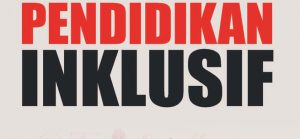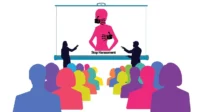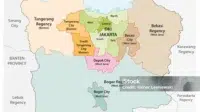Do you know about MBTI? This thing is very popular on this day, especially for young people. Basically MBTI or Myers-Briggs Type Indicator is an assessment test that was designed to help people understand themselves by just answering several questions (Gainey, C.B., 2017).
So, young people are very fond of this test because the questions are simple and the result can be used in various ways. Furthermore, MBTI results are used by young people who are confused in determining what their leadership style is to lead an organization.
But you might be curious, can we really find out the type of leadership based on MBTI results?
Leadership is a skill that is indeed important when it comes to organization. Leadership is a skill when the leader can guide their employees towards the organizational goals, all the while trying to communicate and motivate their employees in order to make sure their employees are in the right position to use their talents and commit to their jobs (Mansaray H.S., 2019).
The leadership style of each person is also different, such as dominant style, servant style, transactional style, transformational style, etc (Khan, et.al 2016). The way each person discovers their leadership style in an organization also varies. Some can immediately identify it themselves, while others may need to take a test.
The assessment test is better known as MBTI. Young people usually take this test to see their personality types in advance and the test results yield various personality types. So far, many people think that there are only two personalities in this world, namely introvert and extrovert.
In fact through this test, you can find out that personality is more than introvert and extrovert! The MBTI test divides a person’s personality based on several categories, namely Introvert (I) vs Extrovert (E), Intuitive (N) vs Sensing (S), Thinking (T) vs Feeling (F), and Judging (J) vs Perceiving (P).
In total we can get 16 personalities if we combine the eight preferences to four scales; INFP, ISTJ, ENFJ, ESTJ, ESFP, etc. The fact that there are 16 types of personality, it can show their way to communicate and behave to other people will be different.
Even the small details like how they will react to the situation upon them, it can be different too. For example, people with an INFP type tend to be quiet and caring idealists. But as an ESTJ, this type tends to be communicative, are very excellent organizers, have forceful personalities, and also enjoy holding leadership positions (Gainey, C.B., 2017).
The abilities and leadership style of an individual are closely linked to the outcomes of their own personality test. This connection exists because our personalities shape how we respond to situations, communicate, and lead within an organization.
While everyone possesses diverse personality types, it is erroneous to assume that an INFP cannot assume a leadership role.
Instead, they may adopt a leadership style known as Servant Leadership and it’s like leading their group by energizing people into action and concentrating on enhancing their employees’ skills (Greasley and Bocârnea 2014). So in conclusion, indeed the result of the MBTI test can show us our leadership style.
Author: Nadya Puspita Giri
Psychology Student, Universitas Pendidikan Indonesia
Editor: Salwa Alifah Yusrina
Bahasa: Rahmat Al Kafi
References
Mansaray, H., N. 2019. The Role of Leadership Style in Organisational Change Management: A Literature Review. Journal of Human Resource Management. Vol. 7, No. 1, 2019, pp. 18-31. doi: 10.11648/j.jhrm.20190701.13
Killam W.K., Degges-White S., Gainey, C.B. 2017. College Student Development; Applying Theory to Practice on the Diverse Campus. Springer Publishing Company. e-book ISBN: 9780826118165.
Greasley, P. E., & Bocârnea, M. C. (2014). The Relationship between Personality Type and the Servant Leadership Characteristic of Empowerment. Procedia – Social and Behavioral Sciences, 124, 11–19. https://doi.org/10.1016/j.sbspro.2014.02.454
Khan, z. a., Nawaz, A., and Khan, I. (2016). Leadership Theories and Styles: A Literature Review. Journal of Resources Development and Management. International Peer-reviewed Journal. Vol.16, 2016. ISSN 2422-8397.
Ikuti berita terbaru Media Mahasiswa Indonesia di Google News















